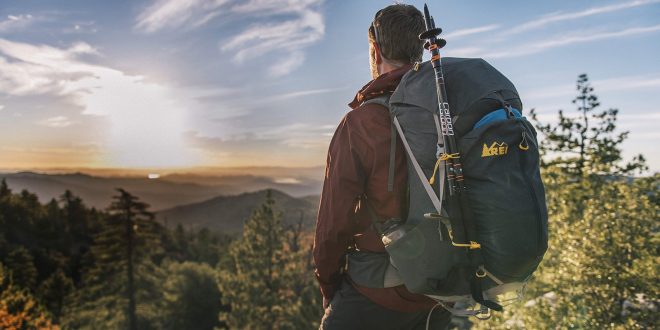Reduce traveling
One of the most obvious ways to reduce your carbon footprint when camping is to choose a destination closer to home so you’ll use less fuel. Look for interesting and undiscovered sites nearby, so you’ll spend less time cooped up in the car and more time enjoying your freedom in the fresh air.
Another thing to consider is whether you can carpool on your trip. Do you really need a convoy of RVs with one or two people in each? For example, if you could fit 6 people and all the equipment into two vehicles, instead of three, you’ll reduce the emissions significantly.
Tents/sleeping bags
If you already have your kit, it makes sense to take good care of it so you can keep using it for as long as possible. If you don’t already have your equipment and are only likely to go camping once or twice a year, ask yourself whether you really need to invest in a new tent. A greener option would be to borrow one from friends or family or to rent one. If you’re ready to go camping regularly and are going to buy a tent so it’s available whenever you need it, consider choosing an eco-friendly model – there are many options to choose from. For example, Yanko Design’s Beluga tent is made from 125 recycled plastic bottles and can be transformed into a hammock or an awning. Or choose a tent made from sustainable material such as bamboo or hemp.
Go Solar
While it’s great to get back to nature, there are bound to be times when you want to heat some water, power a light, or recharge your devices. If you’re going to be heading into the wilderness regularly, portable solar kits can be a great investment and will soon become an indispensable part of your camping set-up. These days there is also a whole range of smaller solar-powered gadgets such as lanterns, water purifiers, and battery chargers that you can even carry when hiking.
Dishes & cutlery
Single-use plastic plates and cutlery are obviously to be avoided. Reusable picnic plates are a more rational solution, and there’s no reason not to use your usual metal cutlery. Washing up after meals can be problematic so ensure you only use biodegradable dish soap. Better to take a good supply with you, then just remove debris from the utensils with grass or sand, and rinse them off using a minimum amount of water.
Leave no trace
The golden rule of reducing your environmental impact on a camping trip is to follow the 7 principles of ‘Leave No Trace’.
Of course, ensuring that you don’t accidentally start a wildfire is a no-brainer: campfires have to be controlled and properly extinguished when you head off home.
Respect the paths and boundaries: don’t disturb the wildlife in their habitat or trample rare plants.
Finally, if you took it in, take it out with you. Ensure you take all rubbish when you leave, and separate your trash, ready to recycle when you get home.


